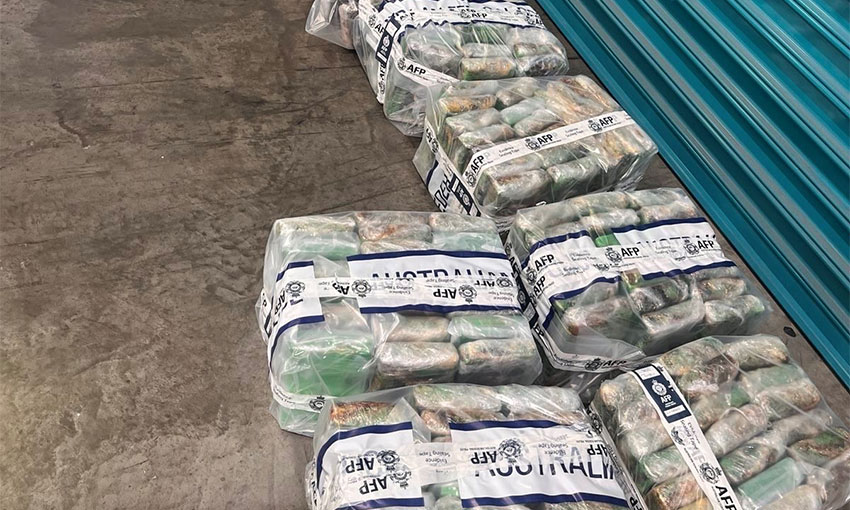A MAN has been charged for his alleged involvement in a criminal syndicate that imported cocaine via air cargo by impersonating a legitimate company.
The 289 kilograms of cocaine arrived in Brisbane from Papua New Guinea on 9 April 2024.
An investigation began that day after the Australian Border Force identified an air cargo consignment suspected to have used the altered details of a legitimate company. This practice is known as “piggybacking”.
ABF and investigators from Taskforce Venator – comprising the Australian Federal Police and Queensland Police Service – examined the two pallets of cargo after its arrival.
They located dozens of rectangular solid blocks, which returned a presumptive positive result for cocaine.
The cargo was described as gravel mix water purifier and drill bits, but the boxes contained 248 packages of cocaine stacked among shredded paper and bubble wrap.
Police seized the cocaine and replaced it with a harmless substance before allowing the consignment to be collected.
It was taken to a freight warehouse, where the man, from Cranbourne West, allegedly collected it on 12 April, and took it to a short-term rental property in Strathpine.
Investigators arrested a Victorian man, 20, as part of the joint investigation with the ABF.
Police allege the man opened one of the boxes at the house and was arrested as he left the property a short time later.
AFP Detective Superintendent Adrian Telfer said the criminal syndicate hoped it could fly under the radar of law enforcement by allegedly using a legitimate company’s details for the import.
“However a vigilant border industry worker raised suspicions about the consignment and authorities were able to prevent these drugs from reaching the community,” he said.
“An import of this size could have accounted for at least 289,000 individual street deals of cocaine, which can cause significant havoc and harm to the Australian community.
“We’re now working with our law enforcement partners offshore, including in PNG, to identify all those involved in this importing plot.”
Royal Papua New Guinea Constabulary Commissioner David Manning said the drugs may have been destined for the Australian market, but when organised criminal groups attempt to use Papua New Guinea as a transhipment point, they “inflict untold misery” on the people of PNG.
“Drugs are syphoned off and sold to our people and the violence that accompanies this trade leaves its mark on our communities,” he said.
“We look to closer co-operation with traditional and emerging partners on these transhipment issues. We are working more broadly with our partners in the Asia-Pacific to prevent the spread of drug use in our country.
“We look to our partners and those end-user markets, to expand our regional capacity to detect the production and movement of drugs.”
The Victorian man has been charged with one count of attempting to possess a commercial quantity of an unlawfully imported border-controlled drug.
He is expected to appear in Brisbane Magistrates Court on 3 May 2024 after he was refused bail when he faced court for the first time on Saturday 13 April.
If convicted, he faces a maximum penalty of life imprisonment.

